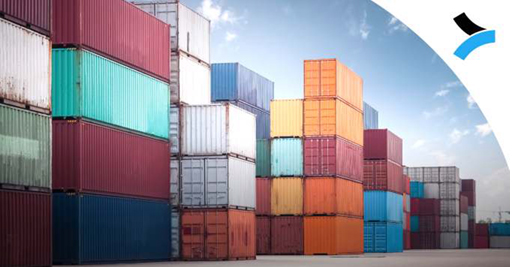PayCargo: Harnessing the power of disruptive technology in digital payment solutions
The era of online payment is no more limited to ecommerce sites—it has expanded to the air cargo industry as well.
The financial aspect of moving goods from A to B is no exception, with digital payment solutions changing the way transactions are made. Modern freight vendors and payers require a B2B payment platform that is fast, easy and secure, with a system built to handle the international demands of shipping cargo around the world.
 There are many online payment solutions on the market, but they are not at all equal to PayCargo—a unique solution that has been developed to fill a gap in the market to meet the needs of today’s shipping and cargo industry. The online platform provides unique electronic tools with end-to-end encryption to automate the payment process and facilitate same day transactions in a secure environment.
There are many online payment solutions on the market, but they are not at all equal to PayCargo—a unique solution that has been developed to fill a gap in the market to meet the needs of today’s shipping and cargo industry. The online platform provides unique electronic tools with end-to-end encryption to automate the payment process and facilitate same day transactions in a secure environment.
This has resulted in minimizing costs across the value chain and achieving the aim of releasing cargo within one hour of payment – an innovative approach that is transforming the nature of B2B freight payments. Basically, by simplifying the system for payers and vendors, PayCargo has created an easy-to-use solution comprising three steps – ship, click and pay.
Lionel van der Walt, Chief Executive Officer and President of the Americas, PayCargo, tells Air Cargo Update how PayCargo is revolutionizing the efficiency of payment process and facilitating same day transactions in a secure environment.
The power of disruptive technology
PayCargo is patented and designed by FirstData and has 12,800 registered payers with 20,000+ users, including the world’s leading logistics companies. The platform has 2,500 registered vendors, featuring major airlines, shipping lines, and large marine terminals.
In the last 12 months alone, PayCargo has processed $2 billion in transactions, making it one of the most widely adopted systems in the industry.
“PayCargo is an online payment platform for moving money and vital remittance information between payers and vendors for the maritime and air cargo industries. We have over 2,500 vendors in our network including major ocean carriers such as Hapag Lloyd and Hamburg Sud; air cargo providers like Air France, Lufthansa, United Airlines, American Airlines, Swissport, Air General, and Total Air; and hundreds of terminals and CFS stations. Over 1,000 of these vendors release the cargo within an hour after receiving the ‘Payment Approval’ alert from PayCargo.
“Our vision is to revolutionize the efficiency of the worldwide movement of goods and material shipped via land, sea or air through the use of PayCargo’s propriety online payment solution. Our mission is to work within the freight shipping industry to facilitate the delivery of cargo via our secure, cost effective, and patented payment platform to improve the speed and profitability of their business.
“PayCargo is harnessing the power of disruptive technology by using advancements in Fintech and applying them to the shipping and cargo industry. A prime example of this is our use of APIs which allows vendors and payers to instantly integrate their own operational or financial software with PayCargo’s digital payment platform, resulting in cargo being released quicker. As demand for e-commerce continues to increase, the quick release of cargo will become even more necessary,” said Van der Walt.
Simplifying payment processes
Van der Walt explained “Fintech is no longer just a buzzword. It is fast infiltrating all industries around the world as we move further into the digital age. As an industry, we cannot afford to be left behind as the rest of the world embraces digital tech, and payment platforms are an efficient way to modernize the air cargo industry.”
“We use an API that allows vendors and payers to instantly integrate their own software with PayCargo’s payment platform. This is speeding up the payment process and even resulting in the instant release of cargo at its destination.
“The idea for PayCargo came from our management team experiencing first-hand the inefficiencies and costs, direct and indirect, associated with the inability to quickly settle transactions between carriers and shippers, we realized there was a need to simplify the payment process for faster cargo movements and to align the industry with the ongoing digitization of financial services.”
An ‘intelligent’ payment system
PayCargo’s vast database of global maritime and air transactions over the past half-decade serves as the basis for a new breed of artificial intelligence and AI-powered applications that is expected to improve the overall performance and efficiency of the cargo and shipping industry. In the near future, data and analytics will also provide insights on trend & spend, consumption, routes, carriers, and asset utilization to help reduce costs and optimize performance based on real time transactions.
Intelligent payment solutions, including blockchain and crypto currency leveraging smart contracts and instant electronic payments will also be offered. And because PayCargo is extensible to all other industry platforms, it will be well positioned to offer this intelligent data and information with our strategic partners seamlessly.
“If PayCargo was not speeding up the delivery of cargo, time sensitive medication might not reach patients on time, flowers may not be available on Mother’s Day, crucial smartphone technology parts may be delayed, or Formula 1 equipment might not be released on time for an important race. By facilitating the fast release of both air and maritime cargo, we are ensuring that other industries can effectively operate. IATA has placed the value of shipped air cargo in 24 hours at US$18.6 billion, which has a huge impact on global trade,” said Van der Walt.
 PayCargo is a secure, encrypted platform. Payments can be automated to reduce manual inputting and digital notifications update vendors and payers when payments have been processed. APIs and automation eliminate human error and speed up processes by seamless integrations that allow instant information uploads, and, or, downloads directly into payers and vendors back office and operational systems.
PayCargo is a secure, encrypted platform. Payments can be automated to reduce manual inputting and digital notifications update vendors and payers when payments have been processed. APIs and automation eliminate human error and speed up processes by seamless integrations that allow instant information uploads, and, or, downloads directly into payers and vendors back office and operational systems.
With the PayCargo platform, users can eliminate outdated paper processes, such as paying with checks and the associated additional costs of having to courier these to vendors, or process transactions manually into systems. Integrations with other industry service providers such as Champ, IBS, Accelya, and Unysis also help to further streamline these processes.
Aligning supply chain management
PayCargo believes in an open, collaborative approach to using technology such as APIs to connect with as many industry stakeholders as possible. This is creating a network that is driven by the value we add through our platform and is servicing vendors and payers across both the maritime and air freight industries.
This connected approach inherently drives a level of alignment amongst vendors, payers, and other service providers such as IBS, Champ, Unisys, and Accelya. We are also making sure that we are following standards and trends being driven by industry associations so that we remain at the forefront of these developments.
“PayCargo was launched in 2009 as a B2B solution to simplify the payment process for faster cargo movements and to align the supply chain with the ongoing digitization of financial services. We saw a need for carriers and shippers to quickly settle transactions to move cargo faster, and, with continued growth in the e-commerce sector, that need will become an even greater priority as we move into the next decade. We couldn’t have got to where we are today without FirstData who developed the first initial code and platform for PayCargo alongside three maritime entrepreneurs. FirstData also patented much of the systems and processes, which now belong to PayCargo,” said Van der Walt.
“This is an exciting time of change and online B2B payment solutions are a prime example of how developments within Fintech are helping to futureproof the shipping and cargo industry,” he added.
First ACCS system
PayCargo has recently collaborated with Hartsfield–Jackson Atlanta International Airport and IT business Kale Logistics Solutions to set up the first Air Cargo Community System (ACCS) in the USA.
The PayCargo platform underpins the ACCS, using Application Programming Interface (API) to facilitate the integration with Kale in the system, giving all stakeholders visibility of the payment status, eliminating delays or unproductive truck trips for shipment pick-up from the hub.
The ACCS allows stakeholders to communicate electronically with each other, as well as shippers, airlines, trucking companies, customs brokers, freight forwarders and cargo handlers.
“It is a big thing for us to be involved with as these air cargo community systems are the future of the industry,” said van der Walt. “The USA is behind the curve at the moment and this is just the start, as other airports in the USA are also talking about setting up air cargo communities. It is something that is really needed by the airports to drive future growth.”
“From our perspective it is great, and we are open to further collaboration and partnering up with companies in the value chain such as air cargo communities.”
The ACCS also facilitates and streamlines the transportation of goods and information, to, and from, the Georgia state airport, which is one of the busiest in the USA.
It has been used to eliminate duplicate data entry work, and excessive documentation, and addresses truck congestion issues, enabling improved customer focus and expedited processes.














